iHARP -> About -> Pan-HDR Ice-Melt Community Council (PHICC) -> PHICC Members
last updated 2024 March 8
The Pan-HDR Ice-Melt Community Council (PHICC) will expand iHARP outreach and engagement to broaden its impact(s) as well as establish small working groups such as those focusing on polar informatics, Machine learning (ML) and High Performance Computing among others.
Learn more about the Pan-HDR Ice-Melt Community Council!
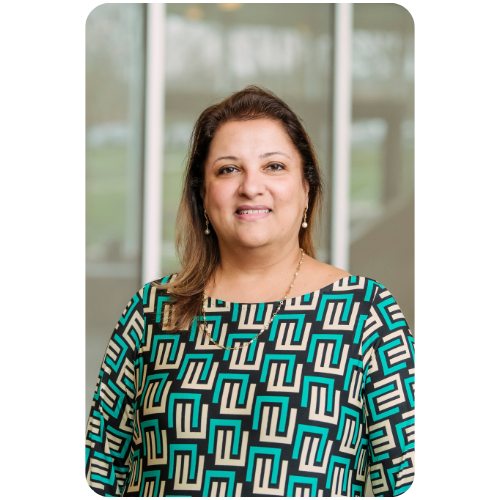
Vandana Janeja is Associate Dean for Research and Faculty Development in the College of Engineering and Information Technology, Professor of Information Systems department at the University of Maryland Baltimore County (UMBC). She is the director of iHARP, an NSF HDR Institute for Harnessing Data and Model Revolution in the Polar Regions. Her research with a current $15 Million grant portfolio is centered in the area of data science with a focus on spatio-temporal mining, data heterogeneity across multiple domain datasets. She heads the Multi Data lab at UMBC which brings together important societal projects such as climate change, ethics in data science, misinformation detection and security through the lens of her research in data science.She is member of the UMBC ADVANCE Executive committee focusing on diversity in STEM and is a member of the ADVANCE leadership cohort (2020-2021), and an ELATES at Drexel leadership fellow (2021-2022). She is a UMBC innovation fellow (2020-2022) advancing the ideas of including ethics in data science. She served as an expert at NSF supporting data science activities in the CISE directorate (2018-2021). She also served as AAAS S&TP fellow in the Office of the Assistant Director in the Directorate of Computer Information Systems and Engineering (CISE) at NSF (2017-2018). During the fellowship, she helped with the visioning and coordination of cross directorate activities for Harnessing the Data Revolution Big Idea at NSF including Data Science Corps and Open Knowledge Network among others and, related activities in the CISE directorate including Cloud Access.
She has published in various refereed conferences such as ACM SIGKDD, SIAM Data Mining, IEEE ICDM, IEEE ISI and journals such as IEEE TKDE, DMKD, KAIS and IDA. Her research has been funded through federal, state and private organizations including NSF, U.S. Army Corps of Engineers, MD State Highway Administration, CISCO. She holds a Ph.D. in Information Technology from Rutgers University. She completed her MBA from Rutgers University and MS in Computer Science from New Jersey Institute of Technology.

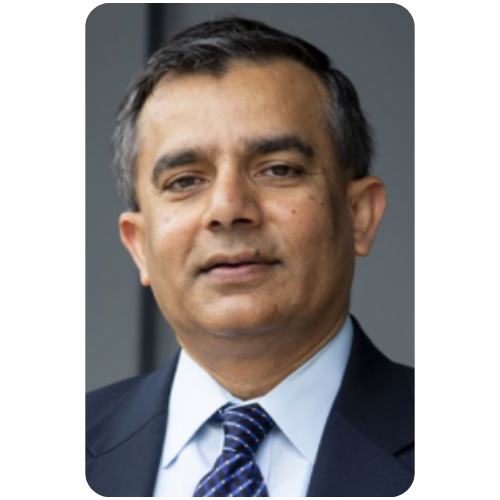
Dr. Shashi Shekhar, is a leading scholar of spatial data science, spatial computing and Geographic Information Science (GIS). Currently, he is a Mcknight Distinguished University Professor and a University Distinguished Teaching Professor at the University of Minnesota (UMN). Recognitions include IEEE-CS Technical Achievement Award, UCGIS Education Award, IEEE Fellow, AAAS Fellow. He was also named a key difference-maker for the field of GIS by the most popular GIS textbook.

Dr. Christopher Shuman, is a Research Scientist within the Cryospheric Sciences Laboratory at NASA Goddard Space Flight Center (GSFC). He has been employed by the University of Maryland, Baltimore County’s (UMBC’s) Joint Center for Earth Systems Technology (JCET) since 2011, now Goddard Earth Sciences Technology and Research (GESTAR) II. Before joining JCET, he was with UMBC’s Goddard Earth Sciences & Technology Center (GEST) for four years. In 2014, he became affiliated with UMBC’s Geography and Environmental Systems Department as an Research Associate Professor.
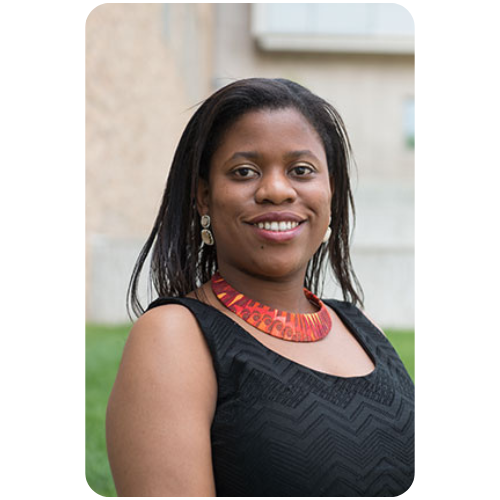
Josephine M. Namayanja is a Research Associate Professor at the Institute for Harnessing Data and Model Revolution in Polar Regions (iHARP), at the University of Maryland, Baltimore County. Prior to that, she served as an Assistant Professor of Management Science and Information Systems in the College of Management at the University of Massachusetts Boston. Josephine received her Ph.D in Information Systems at the University of Maryland, Baltimore County in May 2015 where she also received her M.S. in Information Systems in May 2010. She received her B.S. in Information Technology from Makerere University Kampala in Uganda in May 2007.
Josephine currently serves as the Research Associate Director at iHARP. Her research is primarily in data mining and big data, where she has proposed models for applications in climate change adaptability, health care, cyber security, urban mobility, e-commerce, project management, fintech, higher education learning, labor management, criminal justice, agricultural sustainability, and value-based data science for developing economies. She has published her research work in various journals and also presented at various conferences. Josephine has also served on regional and international conferences as well as, on the editorial review board of journals in the area of data mining, big data, decision sciences, business intelligence, and information systems.

Dr. Sudip Chakraborty, his research focuses on using satellite as well as other remote sensing measurements and climate simulation outputs to understand our climate using machine learning methods and assess the future of the potential climate change impacts by developing predictive models using deep learning, data mining, and statistical techniques. He uses deep learning methods such as convolutional neural networks, recurrent neural networks, and reinforcement learning, time series methods such as the matrix profile, unsupervised methods such as clustering and similarity matching methods to identify the patterns. His current research works are sea ice and ice sheet melting in the Antarctic region, sea ice – ice sheet interaction, understanding and prediction of the drought events, wildfires and human health, fishing industries and particulate transport, and monitoring vegetation water stress. The changing climate impacts everyone whether it’s our human civilization or the ecosystems surrounding and supporting us. Increasing temperatures, polar ice melting, sea level rise, frequent droughts, changing rainfall patterns, and increased wildfires to name a few are affecting us all. Many attempts are being made to mitigate the impacts of climate change. But it’s imminent on us and we keep using the world resources more and more, especially the fossil fuel. The impacts of climate change cannot be reversed immediately even if we stop exploiting the resources, which is practically impossible. However, we can focus on processes and current practices to structure the effects of the potential impacts of global warming. This is the motivation for Dr. Chakraborty’s research.
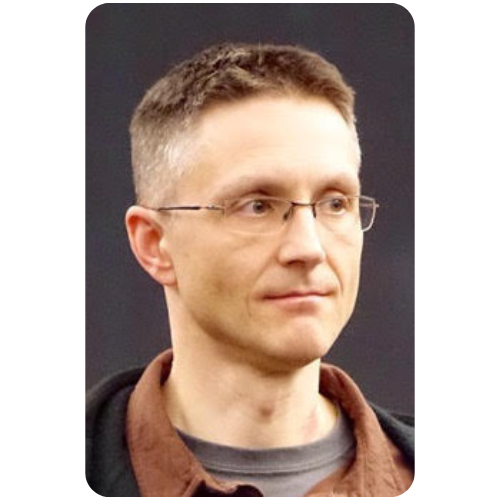
Anthony Arendt has a background in glaciology and has participated in many field excursions in Alaska and Arctic Canada. He is now a Research Scientist at the University of Washington’s eScience Institute’s where he leads programs that advocate for open, inclusive and collaborative science. He is the director of the eScience hackweek program that has supported training for numerous NASA earth science communities.
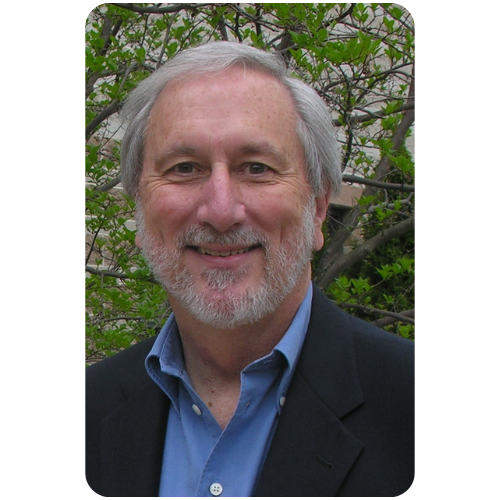
Donald Boesch is Professor Emeritus at the University of Maryland Center for Environmental
Science. An oceanographer, he is a former chair of the Ocean Studies Board of the National
Academy of Sciences and has led evaluations of coastal impacts for two U.S. National Climate
Assessments. He served for ten years on the Maryland Commission on Climate Change and
developed three successive projections for sea-level rise in Maryland for use in adaption
planning. While serving as a Senior Scholar at the National Academies of Sciences, Engineering
and Medicine, he initiated multi-component programs related to sea-level variability in the Gulf
of Mexico and future transitions of Mississippi River Delta.
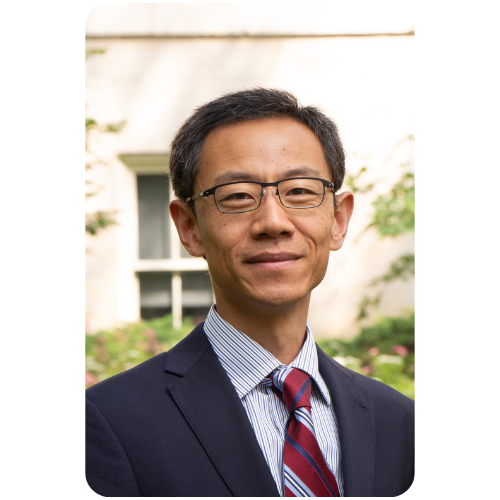
Dr. Guangqing Chi, is a Professor of Rural Sociology, Demography, and Public Health Sciences and Director of the Computational and Spatial Analysis Core at The Pennsylvania State University. His research seeks to understand the interactions between human populations and the built and natural environments and to identify important social, environmental, infrastructural, and institutional assets to help vulnerable populations adapt and become resilient to environmental changes. His research has been supported by more than $50 million grants, including the multi-institutional transdisciplinary POLARIS project (https://arcticpolaris.org) funded by the National Science Foundation, to investigate environmental migration and food security in response to climate change. He has published over 160 publications including more than 100 peer-reviewed journal articles, contributing to foundational advances in environmental demography and population-infrastructure nexus. Chi’s work has led to innovative methods for identifying and measuring human–environment hotspots relating to land developability, population stress, wildfire–population corridors, ecosystems–development stress areas, rural land vulnerable to abandonment, critical riparian zones, and urban areas with high heat risks. He also led the development of spatiotemporal regression methods and applied them in his research on migration, poverty, and fertility. Chi is lead author of the textbook Spatial Regression Models for the Social Sciences (SAGE 2019). His work in applied demography has led to state-of-the-art spatial methods for population forecasting. His current methodological focus is to build an infrastructure for collecting, integrating, and analyzing multi-dimensional and multi-scale data, including big social data (60+ TB; Twitter, Facebook, mobile phones, credit cards, web scraping). He led an NSF project to study the (mis)representativeness of Twitter data and to develop weights to generalize the data, which will create myriad opportunities for social scientists to take advantage of rich social media data. His work is often collaborative and transdisciplinary, aiming to create significant impacts through the integration of research, education, community engagement and outreach, and sometimes international collaboration. For more information, refer to: https://theedenresearch.org/
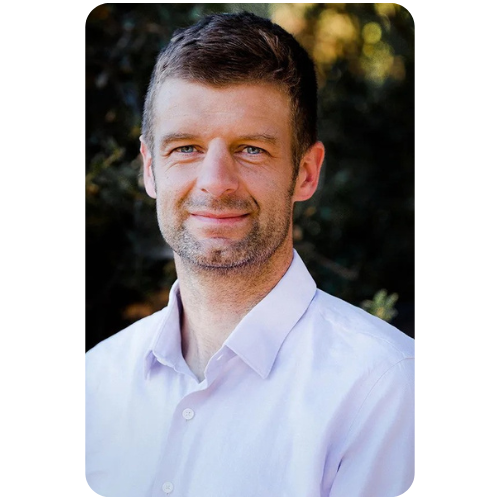
Dr. Benjamin Hamlington is a Research Scientist in the Sea Level and Ice Group, in the Earth Sciences Section. He studies the ocean with a particular focus on sea level variability on interannual to decadal timescales. He has also done considerable work on understanding sea level during the 20th century, comparing historical in situ data to modern satellite observations. He is interested in how sea level is responds to both natural and anthropogenic forcing, and what this will mean for coastal populations both now and in the future. He is a member of NASA’s Ocean Surface Topography Science team, NASA’s GRACE/GRACE-FO Science Team and is the current team lead of the NASA Sea Level Change Science team.
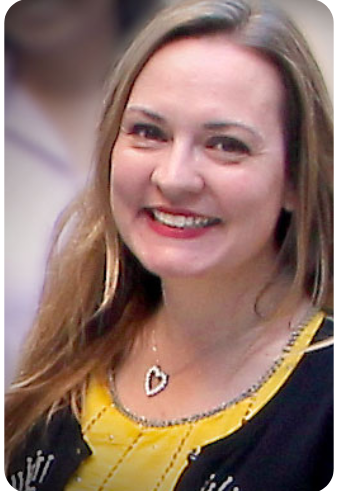
Christine Kirkpatrick leads the San Diego Supercomputer Center’s (SDSC) Research Data Services division, which manages large-scale infrastructure, networking, and services for research projects of regional and national scope. Her research is in data-centric AI, working at the intersection of ML and FAIR, with a focus on making AI more efficient to save on power consumption and ‘time to science’. In addition to being PI of the EarthCube Office (ECO), Kirkpatrick founded the GO FAIR US Office, is PI of the West Big Data Innovation Hub, is on the Executive Committee for the Open Storage Network, and Co-PI of the NSF-funded Transboundary Groundwater Resiliency Research (TGRR) network. Christine serves as a member for The National Academies of Sciences, Engineering, and Medicine on their Board on Research Data and Information (BRDI) to improve the stewardship, policy and use of digital data and information for science and the broader society. She serves as the Secretary General of the International Science Council’s Committee on Data (CODATA), co-Chairs the FAIR Digital Object Forum, is on the Advisory Board for the Helmholtz Federated IT Services (HIFIS), and served on the National Academies of Sciences’ U.S. National Committee for the Committee on Data.
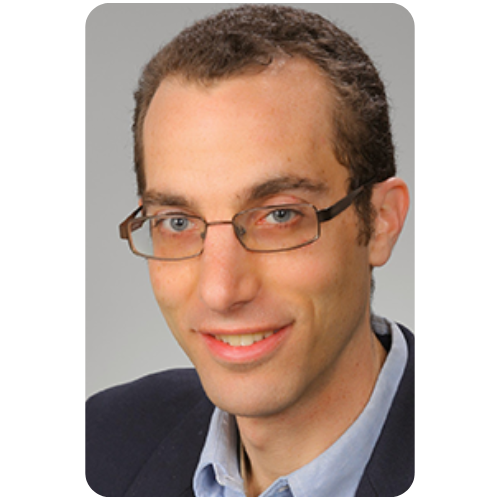
Robert Kopp is a climate scientist who serves at Rutgers University as a Professor in the Department of Earth & Planetary Sciences and as Co-Director of the University Office of Climate Action. He also directs the Megalopolitan Coastal Transformation Hub, a National Science Foundation-funded consortium that advances coastal climate adaptation and the scientific understanding of natural and human coastal climate dynamics. He is also a director of the Climate Impact Lab, a multi-institutional collaboration of more than two dozen economists, data scientists, climate scientists, and policy experts, working to bring Big Data approaches to the assessment of the economic risks of climate change. Professor Kopp’s research focuses on understanding uncertainty in past and future climate change, with major emphases on sea-level change, the interactions between physical climate change and the economy, and the use of climate risk information to information decision-making. He has authored over 120 scientific papers, as well as popular articles in numerous venues. Professor Kopp is a lead author of the Intergovernmental Panel on Climate Change’s 2021 Sixth Assessment Report and of the U.S. Global Change Research Program’s 2017 Fourth National Climate Assessment. Professor Kopp received his Ph.D. in Geobiology from the California Institute of Technology and his undergraduate degree in Geophysical Sciences from the University of Chicago. He is a fellow of the American Geophysical Union, a past Leopold Leadership Fellow, and a recipient of the American Geophysical Union’s James B. Macelwane medal.
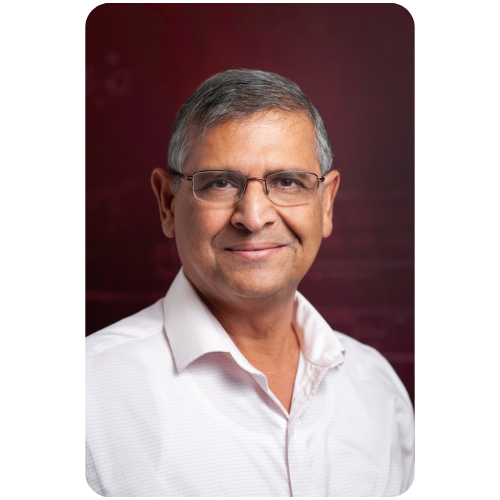
Vipin Kumar is a Regents Professor at the University of Minnesota, where he holds the William Norris Endowed Chair in the Department of Computer Science and Engineering. Kumar received the B.E. degree in Electronics & Communication Engineering from Indian Institute of Technology Roorkee (formerly, University of Roorkee), India, in 1977, the M.E. degree in Electronics Engineering from Philips International Institute, Eindhoven, Netherlands, in 1979, and the Ph.D. degree in Computer Science from University of Maryland, College Park, in 1982. He also served as the Head of the Computer Science and Engineering Department from 2005 to 2015 and the Director of Army High Performance Computing Research Center (AHPCRC) from 1998 to 2005.
Kumar’s research spans data mining, high-performance computing, and their applications in Climate/Ecosystems and health care. His research has resulted in the development of the concept of isoefficiency metric for evaluating the scalability of parallel algorithms, as well as highly efficient parallel algorithms and software for sparse matrix factorization (PSPASES) and graph partitioning (METIS, ParMetis, hMetis). He has authored over 300 research articles, and has coedited or coauthored 10 books including two text books “Introduction to Parallel Computing” and “Introduction to Data Mining”, that are used world-wide and have been translated into many languages. Kumar’s current major research focus is on bringing the power of big data and machine learning to understand the impact of human induced changes on the Earth and its environment. Kumar served as the Lead PI of a 5-year, $10 Million project, “Understanding Climate Change – A Data Driven Approach“, funded by the NSF’s Expeditions in Computing program that is aimed at pushing the boundaries of computer science research.
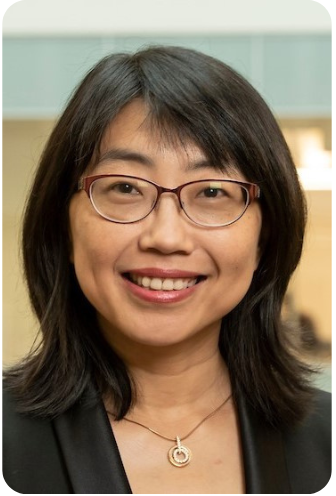
Hai “Helen” Li is Clare Boothe Luce Professor and Department Chair of the Electrical and Computer Engineering Department at Duke University. Her current research focuses on neuromorphic computing systems, deep-learning acceleration and security, memory design and architecture, and high-performance and energy-efficient computing systems. Dr. Li co-directs Duke Center for Computational Evolutionary Intelligence (CEI) (https://cei.pratt.duke.edu/), NSF IUCRC for Alternative Sustainable and Intelligent Computing (ASIC) (https://asic.pratt.duke.edu), and leads the AI Thurst for NSF AI Institute for Edge Computing Leveraging Next Generation Networks (Athena) (https://athena.duke.edu/). She is a Fellow of ACM and IEEE.
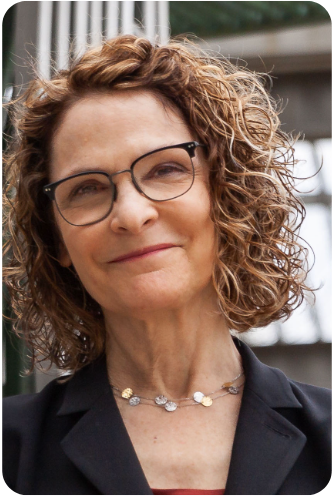
Dr. Plale (iHARP EAB Chair) is the Michael A and Laurie Burns Professor of Computer Engineering in the Department of Intelligent Systems Engineering at Indiana University Bloomington (IU). Plale’s research interests are in infrastructure for scientific research, open science, provenance & reproducibility, and AI accountability. She is a co-PI on in the NSF ICICLE AI Institute working in the areas of privacy, accountability, and data integrity and in workforce development and broadening participation in computing. Plale served at the US National Science Foundation (NSF) as a science advisor working cross-directorate on open science 2017 -2020. Dr. Plale’s postdoctoral studies were at the Georgia Institute of Technology and her PhD is in computer science from the Watson School of Engineering at the State University of New York Binghamton.
She lead the task force in 2020 that developed the Luddy School Strategic Plan for Inclusive Excellence. Plale is a founder of the Research Data Alliance (RDA), a founder of the Center of Excellence for Women & Technology (CEWIT), a founding director of the HathiTrust Research Center, and an inaugural chair of the RDA Technical Advisory Board (TAB). She received the Early Career award from the Department of Energy (DOE).
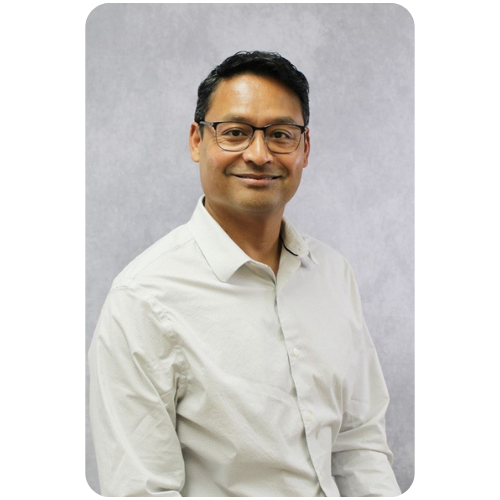
Dr. Rahul Ramachandran is a distinguished Senior Research Scientist at NASA’s Marshall Space Flight Center (MSFC) and leads the Inter-Agency Implementation and Advanced Concepts (IMPACT) team. His research interests span a range of topics, including data science, informatics, and AI/ML. Dr. Ramachandran has numerous peer-reviewed publications and has made significant contributions to improve the way we manage and analyze large geospatial datasets leading to a better understanding of our planet and its complex systems. He has held editorial positions in different journals. Dr. Ramachandran is the recipient of numerous accolades and honors, including the Presidential Early Career Award for Scientists and Engineers (PECASE) and the NASA Exceptional Achievement Medal. Dr. Ramachandran was the American Geophysical Union’s 2023 Greg Leptoukh Lecture recipient in recognition of his significant contributions to informatics, computational, or data sciences through research, education, and related activities.

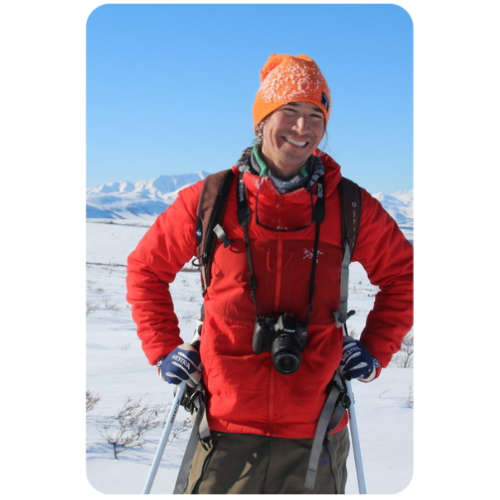
James Temte is a member of the Northern Cheyenne Tribe and leads the NNA-CO Community Extension Office at Alaska Pacific University (APU). James is currently the Director of APU’s Office of Research and Community Engagement. He supports current and future efforts of Indigenous organizations and Indigenous-led collaborations to engage Arctic Indigenous peoples and communities in the work of the NNA-CO. James brings over 15 years of experience working with Tribes and Tribal organizations on social and environmental science initiatives.